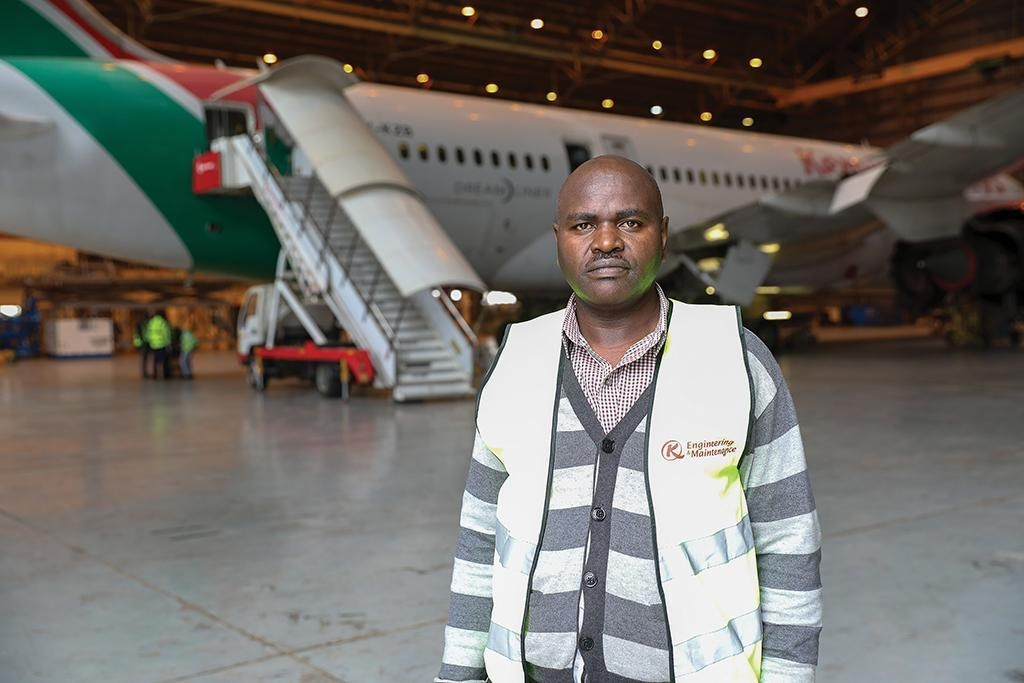أيروجيني — مساعدك الذكي للطيران.
الرائج الآن
Categories
MRO Expands Operations in Africa

MRO Expansion Signals New Momentum in African Aviation
Unscheduled maintenance challenges continue to impede the growth of African aviation, as exemplified by Nigeria’s Air Peace cancellation of flights to six states in January. Across the continent, numerous African-registered aircraft remain grounded at foreign bases due to unpaid bills, underscoring persistent operational and financial difficulties. Ali Tounsi, secretary-general of ACI Africa, highlighted these infrastructure shortcomings during a recent African Airlines Association (AFRAA) webinar, stressing that the sector’s advancement hinges on enhanced government involvement, regional collaboration, and targeted investment. While some regions are beginning to recover from the pandemic’s impact, Central Africa remains hindered by inadequate infrastructure and high operating costs, and political instability continues to affect parts of Northern Africa.
Emerging MRO Initiatives and Strategic Partnerships
Despite these challenges, investor confidence in Africa’s aviation sector is gradually improving. Domestic airlines such as United Nigeria, XEJet, and Ibom Air are spearheading new maintenance, repair, and overhaul (MRO) initiatives. United Nigeria recently signed a memorandum of understanding with Montreal-based Cronos Aviation to establish an MRO facility in Nigeria, which will incorporate technology transfer and technical training for local staff. In January, XEJet commenced construction of a $10 million MRO, flight support, and engineering center at Abuja’s Nnamdi Azikiwe International Airport, with backing from Nigeria’s aviation minister.
Ibom Air is also advancing its maintenance capabilities through collaboration with Airbus Consulting on a long-term MRO strategy that includes comprehensive A220 maintenance. The airline is reportedly considering replacing its Bombardier CRJ900 fleet with Airbus A220s, a transition that would necessitate substantial investment in local maintenance infrastructure. Chief Operating Officer George Uriesi emphasized the airline’s commitment to conducting maintenance domestically but acknowledged the significant investment required and the need for partnerships with established MRO providers to address gaps in staffing and technical expertise.
Industry experts caution that while government approvals for new MRO facilities are promising, the processes of construction and certification remain formidable obstacles. Olumide Ohunayo, director of research at Zenith Travels, observed that overcoming these challenges could elevate Nigeria to the ranks of Morocco, Ethiopia, and South Africa as regional MRO hubs, capable of servicing both domestic fleets and those of neighboring countries lacking such infrastructure.
Challenges and Prospects for Africa’s MRO Sector
The African MRO sector continues to face significant headwinds, including acute labor shortages and ongoing supply chain disruptions. The expansion of global competitors such as Safran and Airbus on the continent is intensifying competition. Nonetheless, the African MRO market is projected to grow at a compound annual growth rate of 4.79% through 2030, reflecting robust underlying demand.
Industry leaders look to international examples for guidance. Captain Samuel Caulcrick, CEO of Merchant Express Cargo Airlines, highlighted the critical role of state-backed financing and infrastructure investment in the success of aviation sectors in China and the Middle East. He advocated for the creation of an aviation development bank in Africa, modeled after the China Development Bank, to provide low-cost capital and strategic investment necessary to modernize the continent’s aviation infrastructure, including MRO facilities.
As Africa’s aviation sector strives to surmount longstanding challenges, the emergence of new MRO projects and increasing investor interest mark a pivotal moment, with the potential to significantly enhance regional capabilities and competitiveness in the years ahead.

Emirates Unveils Cabin Design for New Boeing 777X

Eighteen Years On, the Airbus A380 Remains Central to a $34 Billion Airline

How a boom in luxury airline seats is slowing down jet deliveries

Navitaire Outage Attributed to Planned Maintenance

DigiYatra Debuts Outside Aviation at India AI Impact Summit

Vietnam Orders Strengthen Boeing’s Commercial Outlook

Airbus Signals Uncertainty Over Future A400M Orders

JobsOhio Awards $2 Million Grant to Hartzell Propeller for Innovation Center

Collins Aerospace Tests Sidekick Autonomy Software on YFQ-42A for U.S. Air Force CCA Program

How the Airbus A350-1000 Compares to the Boeing 777
